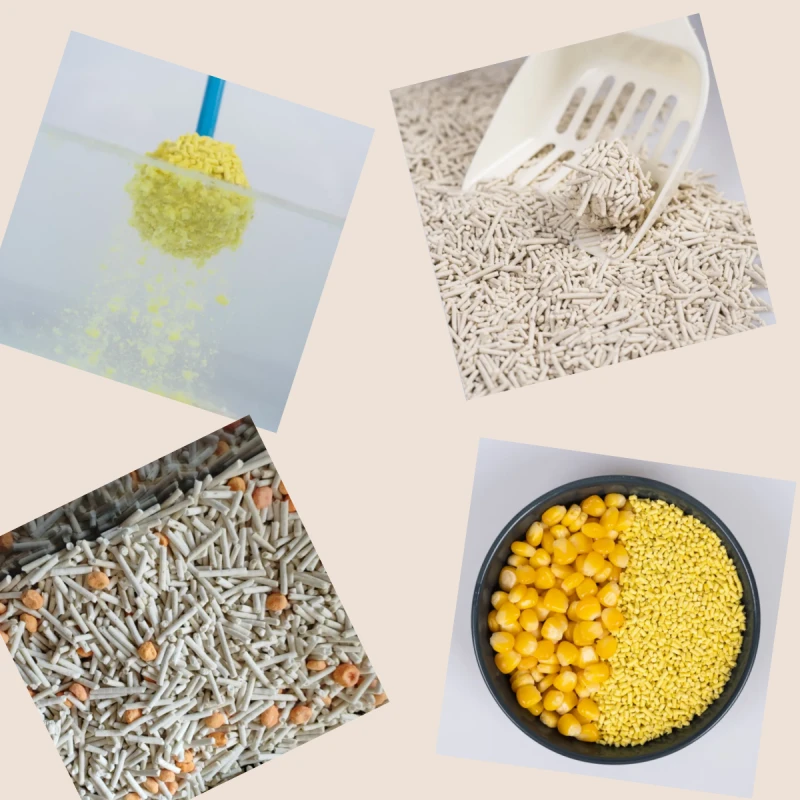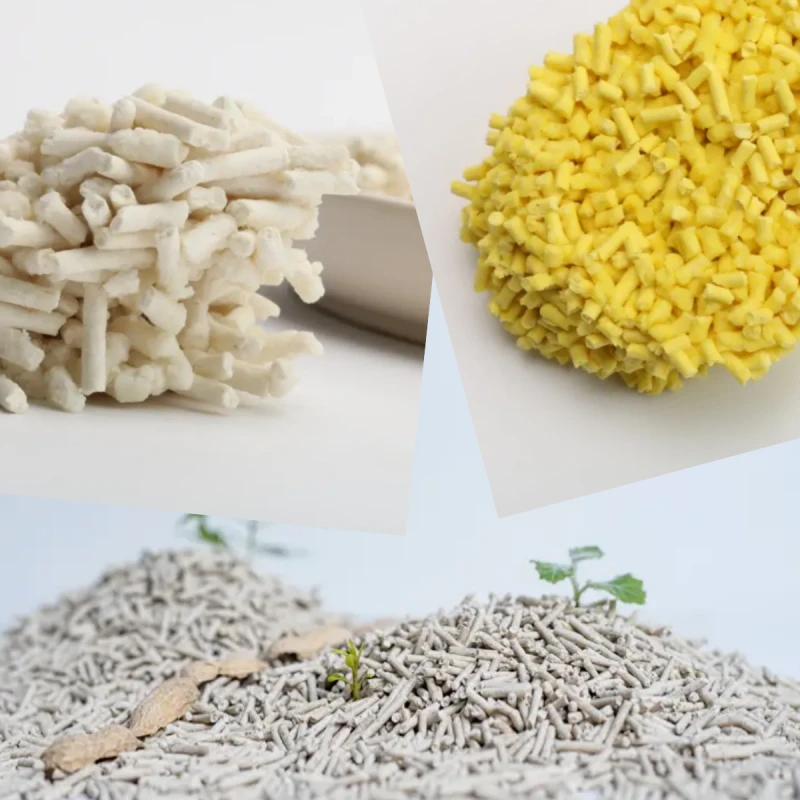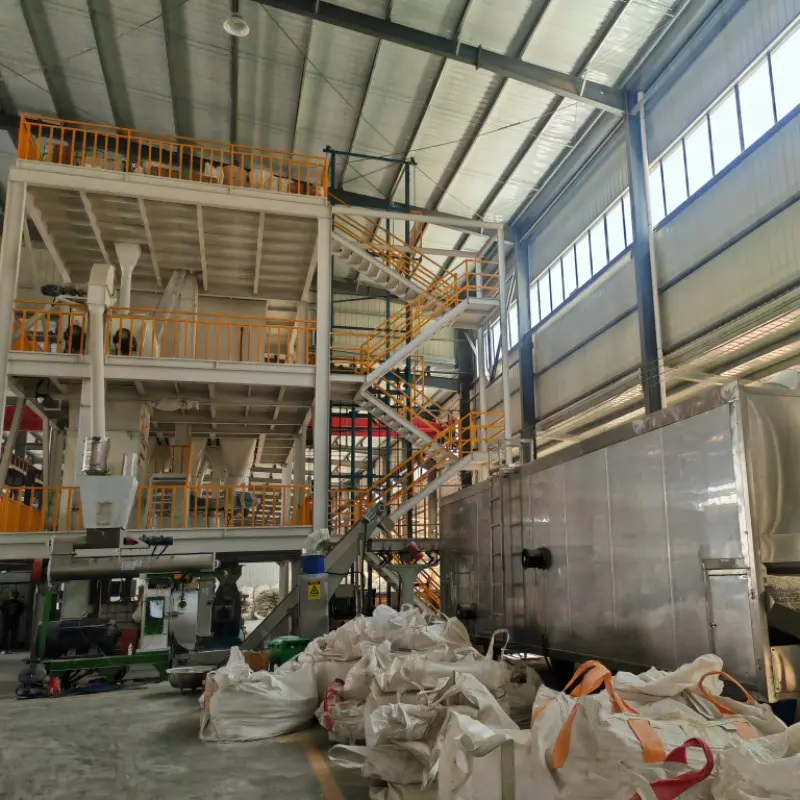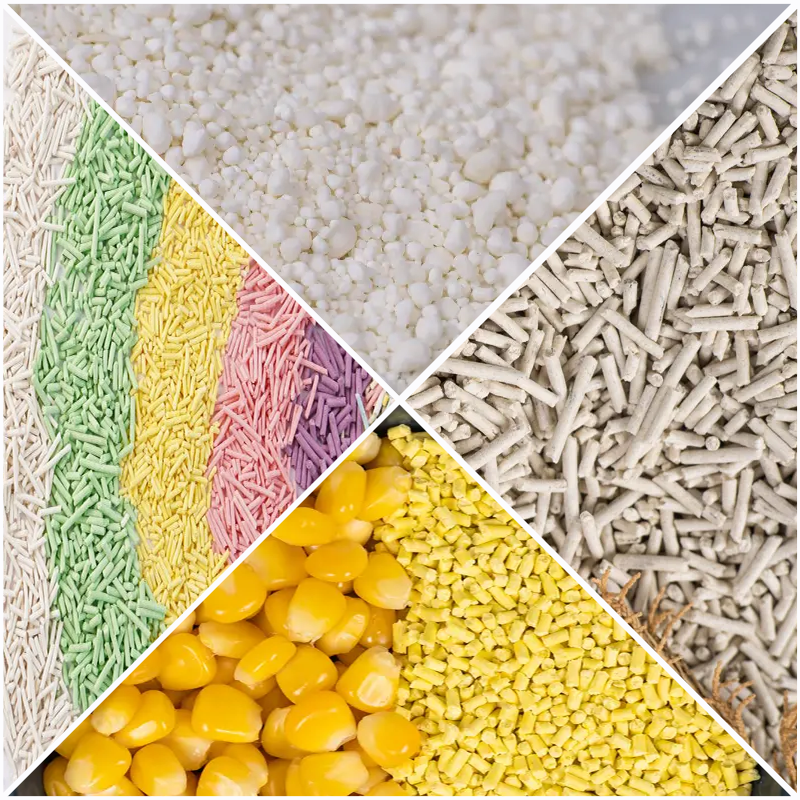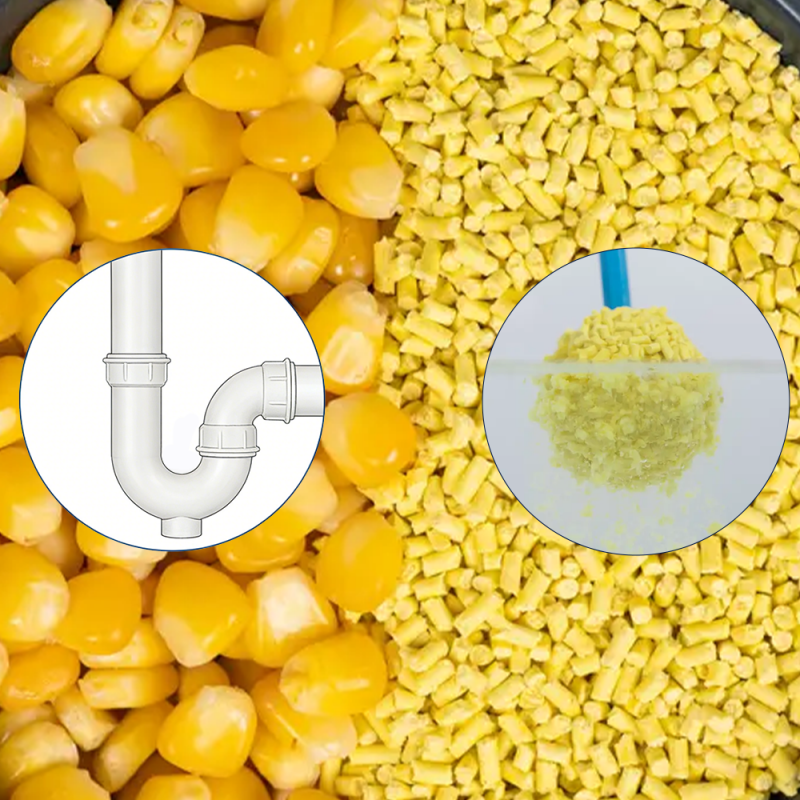What is Corn cat litter?
Corn cat litter is a type of cat litter made from natural corn kernels or corn by-products. It is an environmentally friendly alternative to traditional clay-based cat litters. Corn cat litter typically comes in granular form and is designed to absorb moisture and control odors in the cat's litter box.
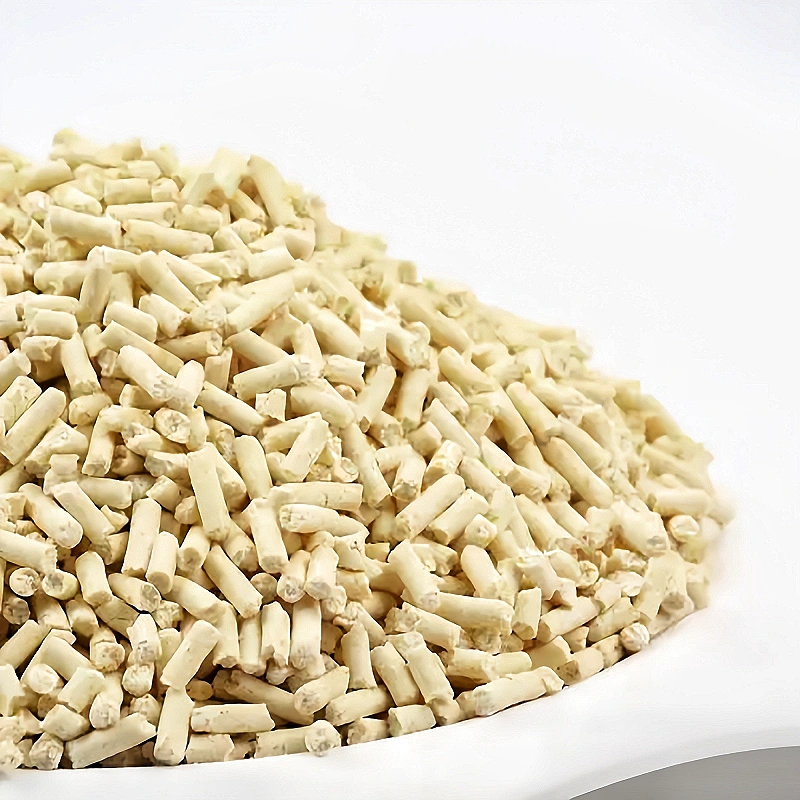
The process of making corn cat litter involves using corn kernels or corn by-products and processing them into small granules suitable for use as cat litter. These granules are highly absorbent, capable of soaking up liquids such as urine and forming solid clumps. This clumping action makes it easier for cat owners to scoop and remove soiled litter from the litter box, helping to maintain cleanliness and freshness.
Corn cat litter is known for its natural odor control properties, helping to neutralize unpleasant smells in the litter box. Additionally, it tends to produce less dust compared to clay litter, which can be beneficial for both cats and their owners, particularly those with respiratory sensitivities.
Overall, corn cat litter offers a safe, natural, and effective option for cat owners who are looking for an eco-friendly alternative to traditional clay-based litters. It provides excellent odor control, absorbency, and clumping properties, helping to keep the litter box clean and fresh while minimizing environmental impact.
What is Cassava cat litter?
Cassava cat litter is a type of cat litter made from the roots of the cassava plant (Manihot esculenta), also known as manioc or yuca. It is an environmentally friendly alternative to traditional clay-based cat litters. Cassava cat litter typically comes in granular form and is designed to absorb moisture and control odors in the cat's litter box.
The process of making cassava cat litter involves using cassava roots and processing them into small granules suitable for use as cat litter. These granules are highly absorbent, capable of soaking up liquids such as urine and forming solid clumps. This clumping action makes it easier for cat owners to scoop and remove soiled litter from the litter box, helping to maintain cleanliness and freshness.
Cassava cat litter is known for its natural odor control properties, helping to neutralize unpleasant smells in the litter box. Additionally, it tends to produce minimal dust compared to clay litter, which can be beneficial for both cats and their owners, particularly those with respiratory sensitivities.
Overall, cassava cat litter offers a safe, natural, and effective option for cat owners who are looking for an eco-friendly alternative to traditional clay-based litters. It provides excellent odor control, absorbency, and clumping properties, helping to keep the litter box clean and fresh while minimizing environmental impact.
What is Corn and cassava mixed cat litter?
Corn and cassava mixed cat litter combines the benefits of both materials to create a unique and environmentally friendly option for cat owners. Here are some key features and advantages of corn and cassava mixed cat litter:
Biodegradability: Both corn and cassava are natural, biodegradable materials, making the mixed litter an eco-friendly choice. After use, the litter can be safely composted or disposed of without harming the environment.
Clumping Properties: Depending on the formulation, mixed cat litter may have clumping properties similar to those of corn litter. Clumping litter forms solid clumps when exposed to moisture, making it easier to scoop and clean the litter box.
Odor Control: Corn and cassava both have natural odor-absorbing properties, helping to neutralize unpleasant smells in the litter box. The combination of these materials can provide effective odor control, keeping the litter box fresh for longer periods.
Low Dust: Like pure corn and cassava litters, mixed litter tends to produce minimal dust, which is beneficial for both cats and humans, particularly those with respiratory sensitivities.
Absorbency: Corn and cassava are both absorbent materials, capable of absorbing moisture and trapping odors. Mixed litter can offer enhanced absorbency, keeping the litter box dry and odor-free.
Environmental Sustainability: By using a mixture of corn and cassava, cat owners can support sustainable agricultural practices. These renewable resources can help reduce reliance on finite clay resources commonly used in traditional cat litters.
Variety: Mixed cat litter provides cat owners with a versatile option that combines the benefits of two different materials. It offers flexibility in terms of clumping ability, texture, and odor control, catering to the preferences of both cats and their owners.
Overall, corn and cassava mixed cat litter offers a natural, sustainable, and effective solution for maintaining a clean and odor-free litter box while minimizing environmental impact. Cat owners looking for an eco-friendly alternative to traditional clay litter may find this mixed option to be an ideal choice for their pets and the planet.
How to choose?
Choosing the right type of cat litter often depends on you and your cat’s specific needs and preferences. Here are some suggestions for choosing the different types of cat litter that are right for your situation:
Corn Cat Litter
Suitable for: If you want a natural, eco-friendly cat litter and your cat is less likely to be allergic to corn, corn litter is a good choice.
Advantages: Corn cat litter usually has good water absorption properties, clumping properties and odor control capabilities. It also generally produces less dust, making it suitable for cats and people who are sensitive to dust.
Cassava Cat Litter
Suitable for: If you want to try a natural cat litter that is different from corn, or if your cat is sensitive to corn, tapioca litter may be a good choice.
Advantages: Cassava cat litter also has good water absorption properties, clumping properties and odor control capabilities. It's also a biodegradable option, helping to reduce environmental impact.
Corn and Cassava Mixed Cat Litter
Suitable for: If you're looking to combine the benefits of corn and tapioca, and your cat isn't sensitive to either material, hybrid cat litter may be a good choice.
Advantages: Mixed cat litter combines the various advantages of corn and cassava, providing good water absorption properties, clumping properties and odor control capabilities. It is also an eco-friendly option that helps reduce dependence on limited resources.
In addition to considering the type of cat litter, you should also consider the following factors:
Cat's Health: If your cat is allergic to a material or has respiratory problems, avoid materials that may cause allergies or worsen symptoms.
Cleaning needs: Consider your cleaning preferences and how much time you are willing to devote to cleaning the litter box. Certain cat litters may be easier to clean and maintain.
Budget: Different types of cat litter may have different prices. Choose the right cat litter based on your budget and needs.
Most importantly, discuss your options with your veterinarian or pet health professional to ensure you choose the most appropriate litter type for your cat.
Corn and cassava cat litter pros and cons
Corn and cassava are both popular alternatives to traditional clay-based cat litters, offering unique advantages and disadvantages:
Corn-based Cat Litter:
Pros:
Biodegradable: Corn litter is typically biodegradable and compostable, making it environmentally friendly.
Clumping Ability: Many corn-based litters have clumping properties similar to clay, making it easier to clean and maintain the litter box.
Odor Control: Corn-based litters often have natural odor-absorbing properties, keeping your home smelling fresher.
Dust-Free: Corn litter tends to produce less dust than clay litter, which can be beneficial for both cats and humans with respiratory sensitivities.
Cons:
Attractiveness to Pests: Some users have reported issues with pests being attracted to corn-based litter, particularly in areas with high humidity.
Tracking: Corn litter can track easily, meaning it may be spread around your home by your cat's paws.
Price: Corn-based litters can sometimes be more expensive than traditional clay litters, though this can vary depending on the brand and location.
Cassava-based Cat Litter:
Pros:
Natural and Sustainable: Cassava litter is made from natural, renewable resources, making it an eco-friendly option.
Clumping Ability: Like corn litter, cassava litter often has clumping properties, making it easy to scoop and maintain.
Odor Control: Cassava litter can be effective at controlling odors, helping to keep your home smelling fresh.
Low Dust: Cassava litter tends to produce minimal dust, reducing the risk of respiratory irritation for both cats and humans.
Cons:
Availability: Cassava litter may not be as widely available as other types of litter, making it harder to find in some areas.
Tracking: Similar to corn litter, cassava litter can track easily, potentially leading to messes outside of the litter box.
Price: Cassava litter may also be more expensive compared to traditional clay litters, depending on the brand and location.
Ultimately, the choice between corn and cassava cat litter depends on factors such as your budget, environmental concerns, and your cat's preferences. It's always a good idea to test out different litters to see what works best for you and your furry friend.
How to make?
Creating a corn and cassava mixed cat litter in a factory involves several steps:
Ingredient Selection: Choose high-quality corn and cassava materials that are suitable for use in cat litter production. These materials should be free from contaminants and pesticides.
Grinding and Mixing: Grind the corn and cassava into fine particles using industrial grinding equipment. Then, mix the ground corn and cassava together in the desired proportions to create the litter blend. The mixing process should ensure uniform distribution of the two ingredients.
Additives: Incorporate any necessary additives into the mixture, such as odor control agents or clumping agents, to enhance the performance of the cat litter.
Moisture Control: Monitor and control the moisture content of the mixture to achieve the desired consistency for forming clumps and controlling odors. This may involve adding or removing moisture as needed during the manufacturing process.
Forming: Use specialized equipment to form the mixed corn and cassava litter into granules or pellets of the desired size and shape. This can involve processes such as extrusion or pelletization.
Drying: Dry the formed cat litter pellets to remove excess moisture and ensure they are stable and durable for packaging and use.
Packaging: Once dried, the cat litter can be packaged into bags or containers for distribution and sale. Packaging should be designed to maintain the freshness and integrity of the litter until it reaches the consumer.
Quality Control: Implement quality control measures throughout the manufacturing process to ensure that the finished cat litter meets the necessary standards for performance, safety, and consistency.
By following these steps, a factory can produce high-quality corn and cassava mixed cat litter for pet owners to use with their cats.
Reviews
"Finally, a cat litter that combines the best of both worlds! With corn and cassava mixed litter, I no longer have to compromise between eco-friendliness and clumping power. My kitty loves it too!"
"I was skeptical about trying a mixed litter, but this corn and cassava blend exceeded my expectations. It clumps well, controls odors effectively, and I feel good knowing it's better for the environment."
"This litter has been a game-changer for us. The corn and cassava mix not only reduces tracking around the house but also lasts longer than other litters I've tried. Plus, it's biodegradable, which is a huge plus!"
"As a cat owner who's conscious about sustainability, I'm thrilled with this corn and cassava mixed litter. It's a win-win – environmentally friendly and works like a charm. Definitely sticking with this one!"
"I appreciate the effort to innovate in the cat litter space with this corn and cassava blend. While it's great for the planet, I've found it clumps a bit too much for my liking. Still, I'll give it points for trying something new."
"This litter has been a lifesaver for my sensitive-nosed kitty. The natural odor control properties of corn and cassava make a noticeable difference. Plus, it's gentle on her paws, which is a big deal for me."
"I switched to this corn and cassava mix after concerns about clay litter's environmental impact. It's been fantastic – easy to scoop, virtually no dust, and my cats have taken to it with no issues. Highly recommend!"
"While the idea of a mixed litter is intriguing, I found the texture of this corn and cassava blend to be too coarse for my cat's liking. Perhaps tweaking the ratio could improve the overall feel."
"I've been using this litter for a while now, and I'm impressed with its performance. The corn and cassava combination seems to neutralize odors better than other litters I've used, and the clumps hold up nicely."
"This corn and cassava mixed litter is a hit in our household. It's not only gentle on our cats' sensitive noses but also on our budget. Plus, knowing it's eco-friendly gives us peace of mind. Definitely a keeper!"
About Gelin Town Pet
Gelin Town Pet stands as a leading manufacturer and supplier of corn and cassava cat litter based in China. Committed to excellence and sustainability, we specialize in producing premium cat litter solutions crafted from natural corn and cassava materials.
With a focus on innovation and environmental responsibility, we utilize advanced manufacturing processes to transform corn and cassava into highly absorbent and odor-controlling cat litter products. Our litter options are meticulously formulated to ensure optimal performance, providing cats with a clean and comfortable litter experience while minimizing environmental impact.
At Gelin Town Pet, we prioritize the health and well-being of both pets and their owners. Our corn and cassava cat litters are free from harmful chemicals and additives, making them safe for cats of all ages and breeds. Additionally, our litter options are dust-free, ensuring a healthier and more hygienic environment for both cats and their human companions.
Choose Gelin Town Pet as your trusted partner for premium corn and cassava cat litter solutions that prioritize quality, sustainability, and the welfare of your beloved pets.
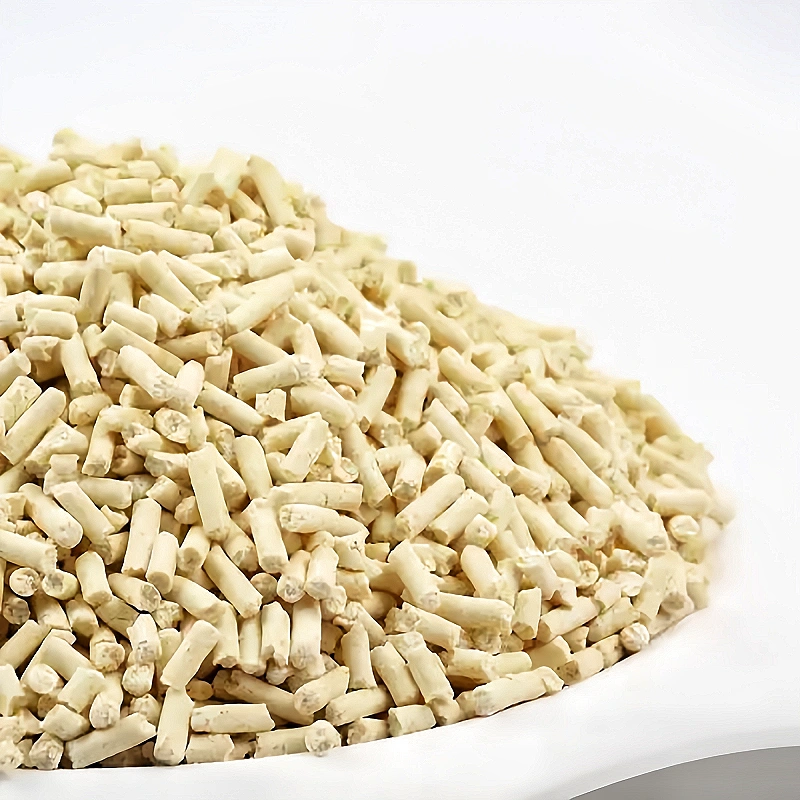
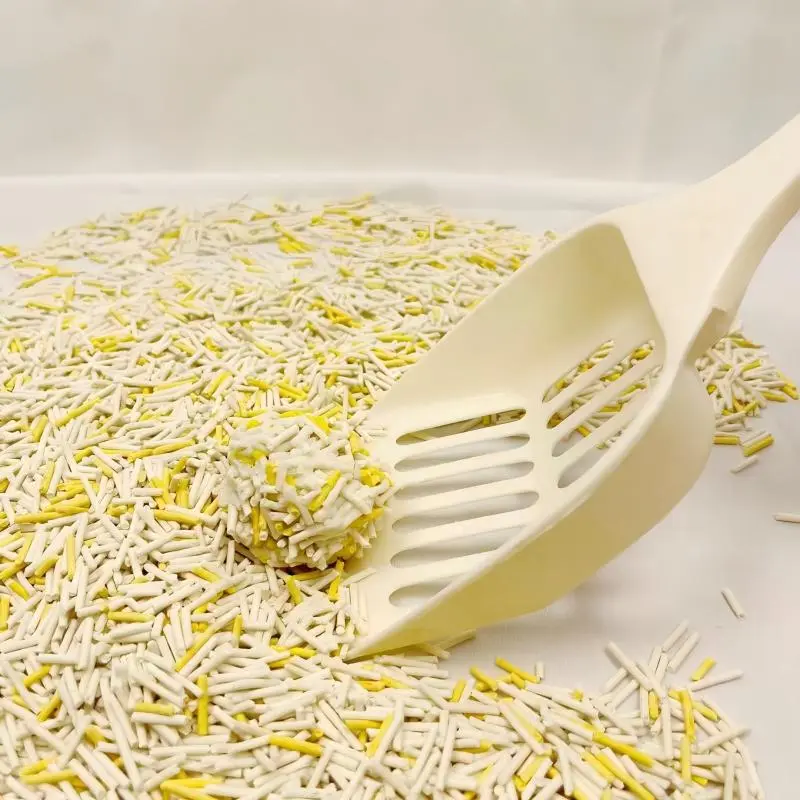
387.webp)
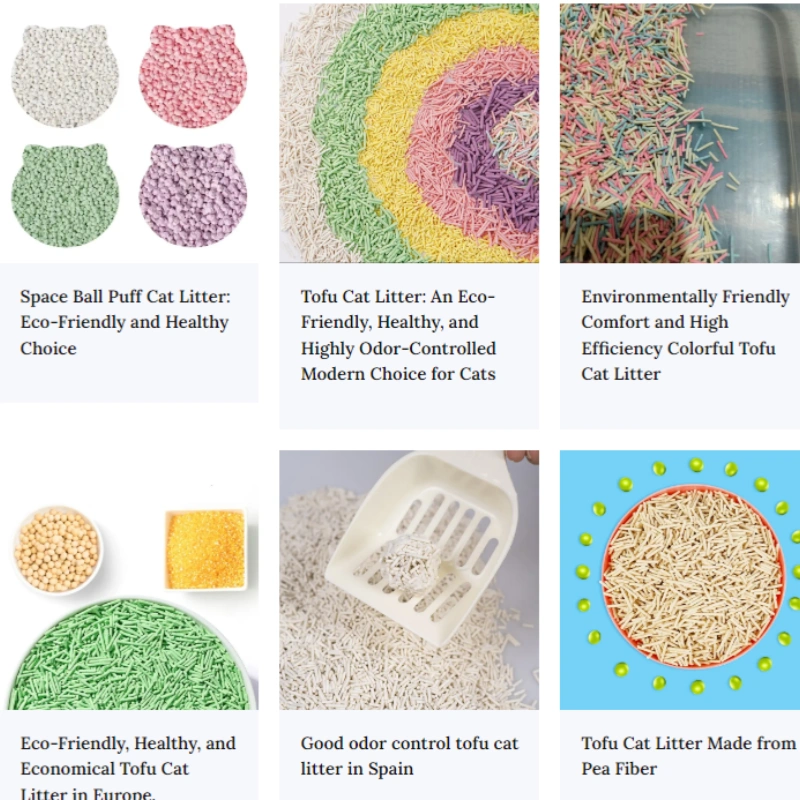
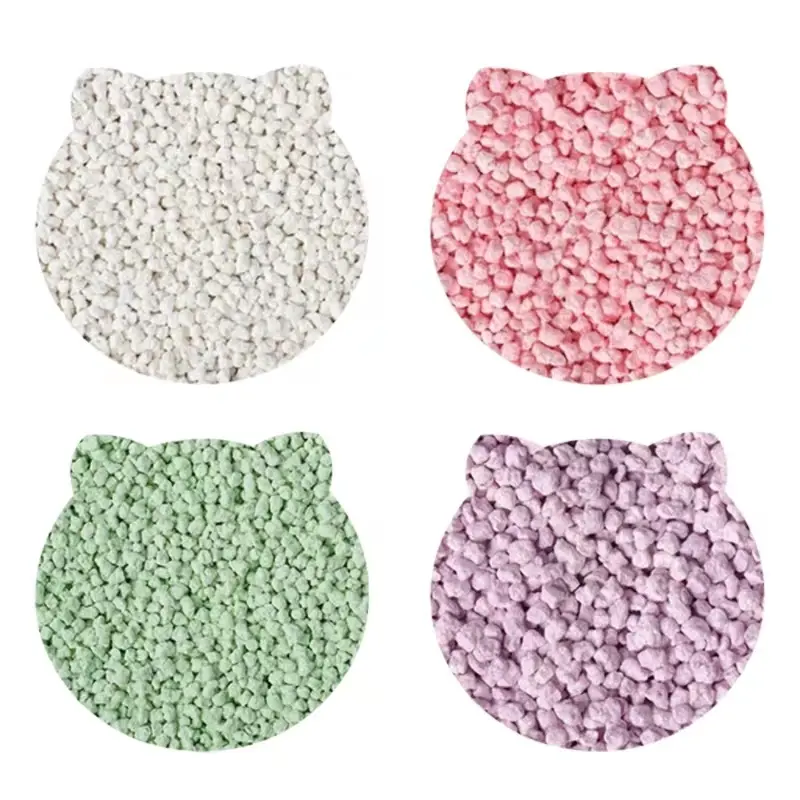
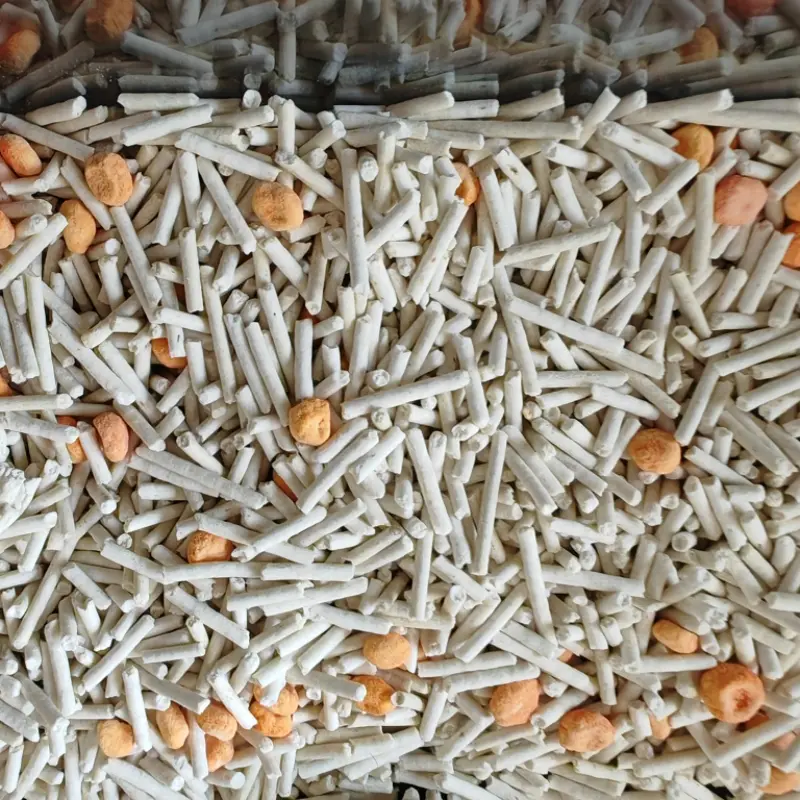
122.webp)
